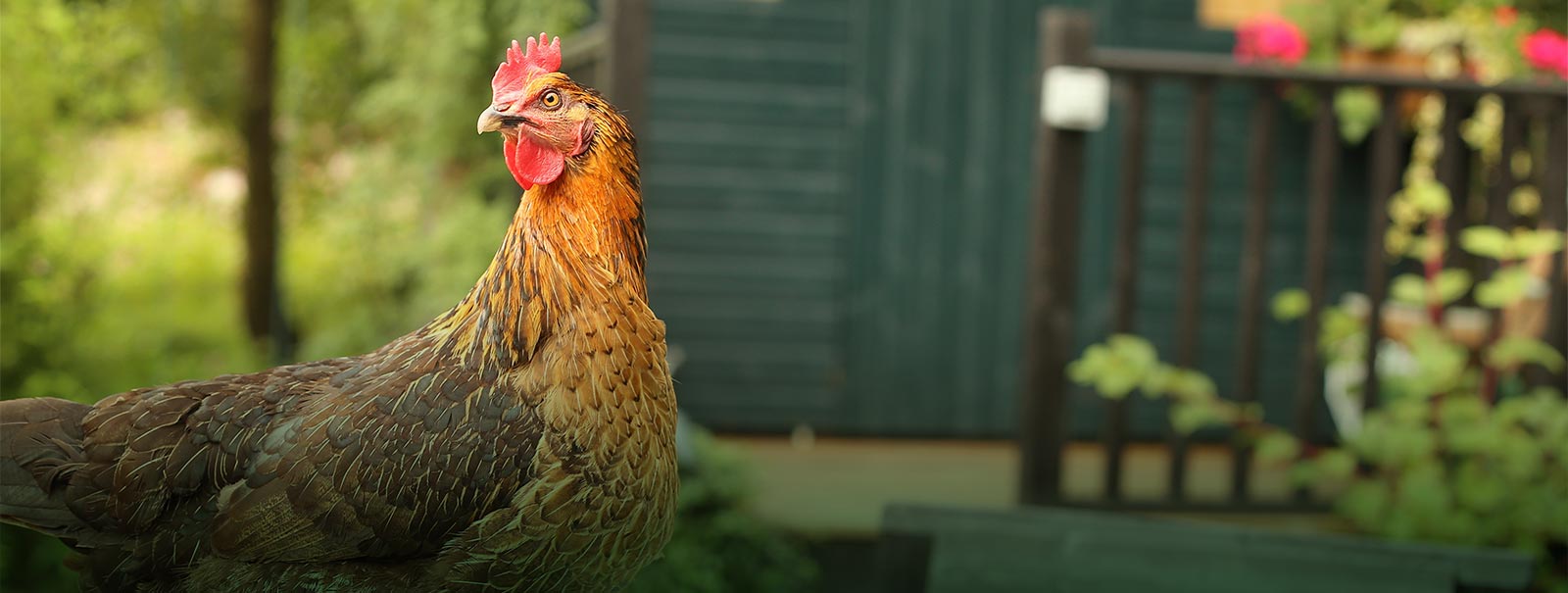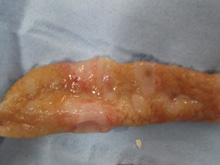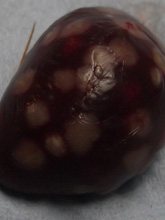
The advice hub Avian Leukosis
Avian Leukosis virus causes tumours internally which can have devastating effects on your flock.
Cause
Avian leukosis virus belongs to a family of viruses called retroviruses. In this family of viruses are; bovine leukosis (affecting cattle), feline leukosis (affecting cats) and HIV.
Note: Avian leukosis virus cannot spread to humans or any other species.
Retroviruses are relatively poor at surviving outside of the bird. Hence it is only transmitted via treading (mating), vertical transmission through the egg and from biting pests such as red mites.
Avian Leukosis infects the white blood cells, these are the cells that the body uses to fight infections, which leads to two main effects:
- Damage to the infected white blood cells so the bird cannot fight off disease, leading to your birds developing other infections such as respiratory disease and coccidiosis. When these infections are treated by your vet you will find the birds do not recover as well as expected.
- The virus eventually goes on to form tumours in the internal organs of the chicken such as the liver, spleen, kidneys, reproductive organs and bones.

Gut with tumours
Initially, the chickens may appear to have a minor respiratory infection or diarrhoea; however even with treatment the birds often fail to improve and the affected birds become dull and lose a lot of weight. Eventually if not euthanized these birds die. In some cases, Avian Leukosis causes bone tumours to form in the legs leading to thickened bowed legs.
However, it is important to note, that unlike Marek’s disease Avian Leukosis never causes nervous signs as the virus will never cause tumours in the nervous system.
The best way to diagnose Avian Leukosis is through a post mortem where the vet will look for tumours in the internal organs. Often it is difficult to distinguish between Marek’s and Avian Leukosis on post mortem without histopathology (the tissue is cut into thin slices and examined through a microscope to look for the cancerous cells).
Treatment
There is no treatment for Avian Leukosis and affected chickens are best put to sleep. The disease is prevented by keeping a closed flock and buying birds (and eggs) from reputable suppliers.
If you have an infected chicken then potentially Avian Leukosis will be transmitted to its offspring. It is also transmitted by mating. As mentioned previously the disease will be carried by biting pests so if you do have an outbreak it is important to destroy all red mites, biting flies and lice.
You will find other associated issues surrounding Avian Leukosis as infected birds often act as a reservoir for other diseases, such as Respiratory Disease, which can go on to infect other chickens who have not transmitted Avian Leukosis.
If you suspect any of your birds have Avian Leukosis disease then seek veterinary help immediately.

Spleen with tumours
© 2026 The Chicken Vet. All rights reserved

